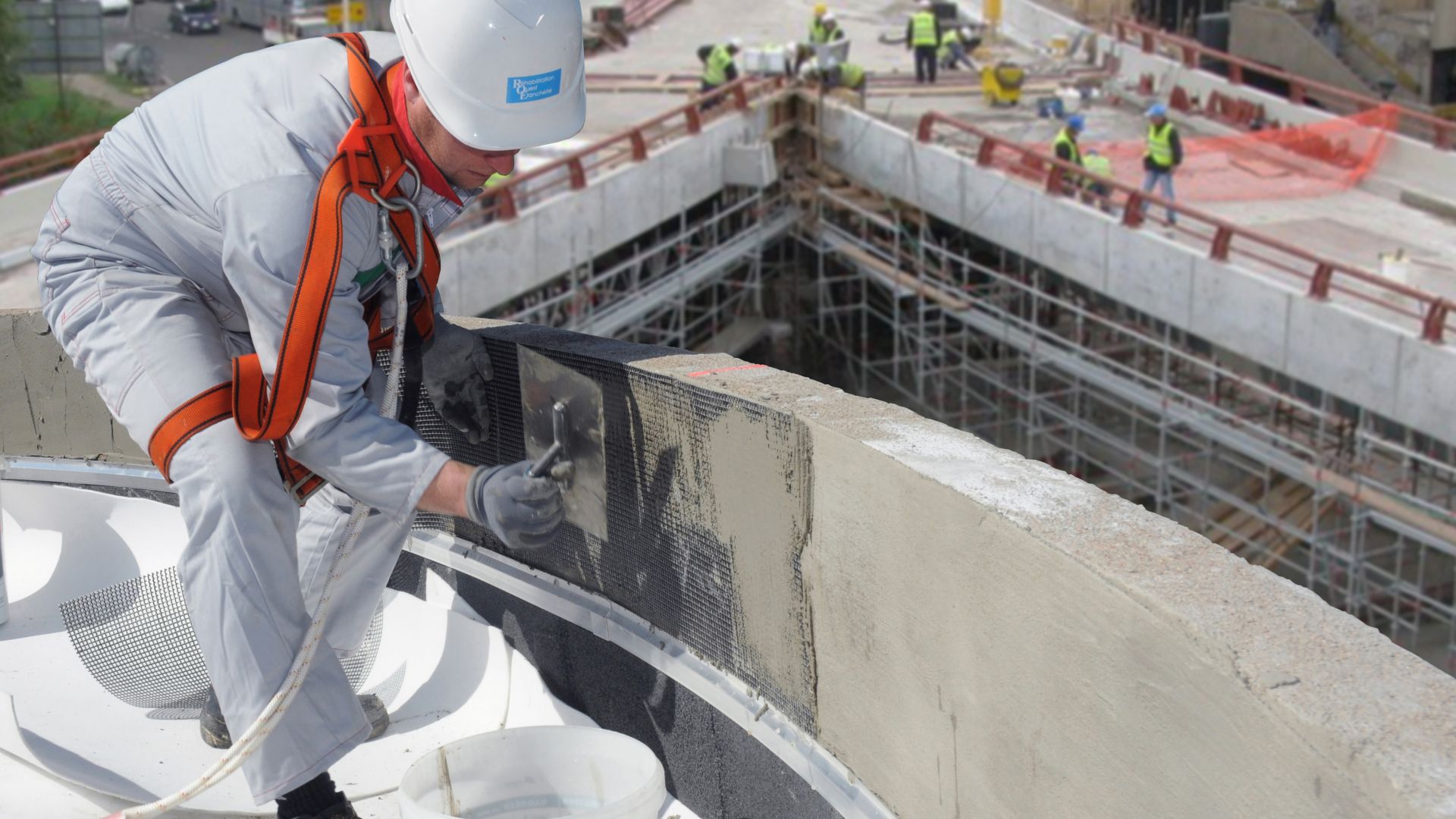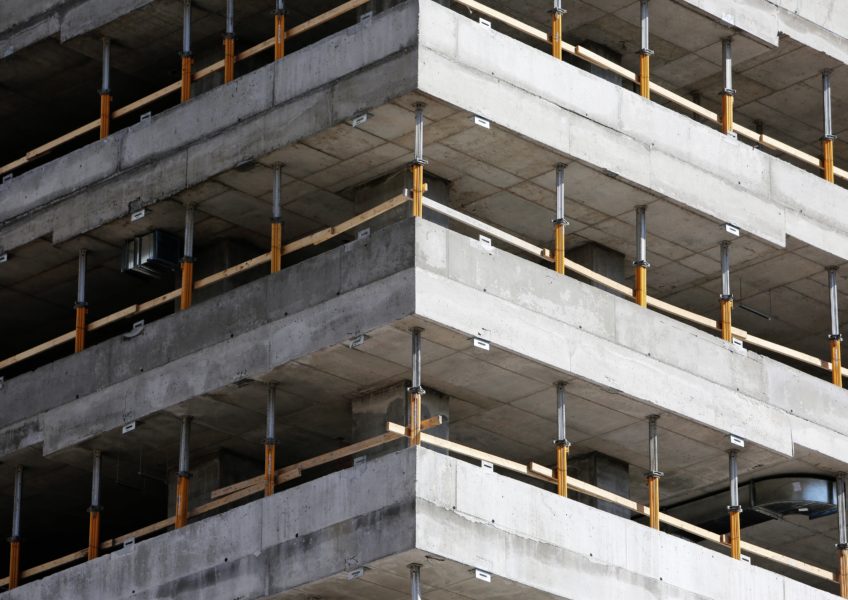5 Questions You Must Ask Your West Coast GE Concrete contractors Before Breaking Ground
5 Questions You Must Ask Your West Coast GE Concrete contractors Before Breaking Ground
Blog Article
The Essential Role of Concrete Structure in Structural Honesty and Long Life
When it comes to building a residential property, the structure is a lot more essential than you could assume. Concrete foundations offer unrivaled stamina and toughness, guaranteeing your structure can stand up to different environmental difficulties. Without a solid base, you run the risk of potential issues like shifting or cracking, which can endanger security and worth. Comprehending the nuances of concrete foundations can be the trick to protecting your investment for years to come. What should you take into consideration following?
Understanding the Importance of Concrete Foundations
Concrete structures are essential to the general stability of any framework, as they offer the vital support needed to hold up against different loads and ecological problems. When you believe about constructing a home or an industrial space, the structure is the first point you ought to take into consideration. It functions as a barrier versus moisture, shielding your property from water damages. A well-placed concrete foundation likewise prevents settling and shifting, which can result in cracks in wall surfaces and floors. You'll intend to assure that the foundation is effectively developed and strengthened, as this affects the long life of your building. Furthermore, a strong foundation can improve power efficiency by reducing air leakages. Keep in mind, disregarding the significance of a concrete structure can lead to expensive fixings down the line. So, investing in a high quality foundation upfront is crucial for the integrity and toughness of your framework.
Advantages of Concrete Foundations for Structural Stability
While lots of variables add to a building's structural honesty, concrete foundations use unequaled longevity and strength. You'll value that concrete can withstand extreme weather problems, standing up to both moisture and temperature fluctuations. This strength suggests your framework is much less most likely to experience cracking or shifting over time, which can compromise its safety.Additionally, concrete's inherent weight supplies a strong base, preventing movement throughout all-natural occasions like quakes or floods. When you select a concrete foundation, you're additionally choosing reduced upkeep; unlike timber, it will not rot or draw in bugs, conserving you money and time in repairs.Moreover, concrete's fire resistance offers included safety and security, guaranteeing your framework can withstand high temperatures without significant damages. On the whole, spending in a concrete foundation implies you're prioritizing the lasting security and stability of your building, making it a sensible choice for any construction task.
Typical Kinds Of Concrete Foundations
When it comes to constructing structures, understanding the common sorts of concrete structures can aid you make educated options for your project. One of the most common kinds consist of slab-on-grade, crawl area, and full cellar foundations.A slab-on-grade foundation is a simple, cost-effective alternative, where a thick concrete slab is put directly on the ground. This kind functions well in warm environments, as it reduces heat loss.Crawl area foundations boost the home slightly over ground, enabling for air flow and accessibility to plumbing and electric systems. This design can assist prevent dampness issues.Full basement structures offer added living or storage area while providing superb structural assistance. They require even more excavation and are generally made use of in colder environments to avoid frost heave.
Variables to Think About When Creating a Concrete Foundation

Finest Practices for Setting Up Concrete Foundations
When you're installing a concrete foundation, correct site prep work is important to assure stability (West Coast GE Concrete contractors). You'll additionally need to understand reinforcement methods to improve toughness and toughness. Lastly, don't forget the healing process, as it plays an essential function in accomplishing a strong structure
Website Prep Work Value
It might appear uncomplicated, proper site prep work is important for ensuring a solid and long lasting concrete foundation. Start by getting rid of the area of any particles, greenery, or natural product that could endanger the foundation's honesty. Next, assess the dirt type and compaction; you could need to dig deep into or add products to produce a steady base. Level the ground to assure even weight circulation and avoid settling problems later on. Setting up proper drain systems is additionally important to avoid water buildup, which can compromise the structure over time. Lastly, mark out the foundation's measurements accurately to direct the putting process. By adhering to these steps, you'll set the phase for a successful concrete foundation that stands the examination of time.
Support Techniques Clarified
Once the site is appropriately prepared, the following step in ensuring a tough concrete foundation includes applying effective reinforcement methods. You need to start by using steel rebar, which supplies tensile toughness and aids avoid splitting. Lay the rebar in a grid pattern, ensuring it's raised making use of spacers to maintain proper protection. In addition, take into consideration using wire mesh for extra support, particularly in areas based on hefty tons. Do not neglect to link the rebar intersections securely with wire. For larger foundations, fiber reinforcement can enhance toughness, lowering the threat of contraction fractures. Always comply with local structure codes and standards to make sure conformity. By applying these reinforcement techniques, you'll considerably boost your foundation's strength and longevity, laying a strong foundation for your framework.
Treating Process Essentials
To guarantee your concrete structure treatments properly, it's crucial to keep ample wetness and temperature conditions right away after pouring. Beginning by covering the surface area with a damp burlap or plastic sheeting to preserve dampness. This keeps the concrete hydrated, preventing splits and making sure strength. You should also keep track of the temperature; perfect treating conditions are in between 50 ° F and 90 ° F. If it's as well hot, haze the surface routinely to stop rapid dissipation. For winter, take into consideration utilizing insulating coverings to maintain heat. Objective for a healing period of at the very least seven days, as this is vital for optimal strength advancement. By following these ideal practices, you'll enhance your foundation's resilience and longevity, guaranteeing architectural stability for several years to find.
Upkeep of Concrete Foundations for Durability
To keep your concrete structure strong and long-term, routine examinations are vital. You need to likewise assure effective drain remedies are in place to avoid water damage. If you detect any fractures, resolving them immediately will conserve you from larger troubles down the line.

Regular Inspections and Assessments
While normal examinations and evaluations may feel like a chore, they're essential for keeping the integrity aerated concrete of your concrete structure. By regularly looking for cracks, changes, or signs of wear, you can capture prospective issues prior to they intensify into expensive repair work. Look for any kind of water pooling around the structure or unusual settling, as these can signal underlying problems. It's likewise a good idea to check any type of changes in your house's structure, like doors that stick or home windows that don't open efficiently. Keeping a record of your evaluations helps track changes with time, permitting positive upkeep. Ultimately, these analyses guarantee your structure remains steady, supporting the durability and safety and security of your whole structure. Don't ignore this critical element of homeownership!
Reliable Drainage Solutions
Routine inspections can expose concerns like drain troubles that might jeopardize your concrete structure's stability. To avoid water buildup, guarantee your rain gutters and downspouts straight water far from the foundation. Installing French drains can effectively reroute surface area and groundwater, lowering stress on your structure wall surfaces. Additionally, grading the dirt around your home aids assure that water flows away, rather than merging near your foundation.Consider making use of sump pumps in areas susceptible to flooding, as they proactively get rid of excess water. Routinely look for blockages in water drainage systems and clear them without delay. You'll protect your structure's integrity and longevity by taking these positive procedures. Keep in mind, reliable water drainage remedies are essential for maintaining a strong, durable concrete foundation.
Trigger Fracture Fixes
When you observe splits in your concrete structure, resolving them immediately is necessary for preserving its durability. Little fractures can rapidly advance right into bigger problems, jeopardizing the structural stability of your home. On a regular basis check your structure for indications of damage, such as straight or upright splits. If you detect any kind of, do not wait-- fix them promptly. You can utilize epoxy injections or concrete patching compounds, which are reliable for securing fractures. Always comply with the maker's guidelines and take into consideration seeking advice from an expert for considerable damages. Bear in mind, timely repair work not just boost your foundation's toughness however likewise save you cash in the future by stopping extra substantial fixings down the line. Stay positive, and your foundation will certainly stay solid and safe.
Addressing Typical Problems With Concrete Structures
Concrete foundations can encounter numerous concerns over time, making it essential to recognize and resolve them immediately. One of one of the most common troubles is fracturing, which can take place due to temperature level fluctuations or settling soil. If you observe fractures, it's vital to examine their size and deepness; small cracks can commonly be sealed, while bigger ones might require professional evaluation.Water invasion is another significant worry. Excess dampness can bring about mold and mildew development and structural wear and tear. Assurance appropriate water drainage around your structure to minimize this risk. Additionally, try to find indicators of shifting or bowing walls, as this can indicate underlying concerns with your structure's stability.Regular inspections are fundamental to capture check here these problems early. If you identify any worrying indications, don't think twice to get in touch with a foundation professional. By staying positive, you can maintain the integrity and durability of your concrete structure, assuring your home stays risk-free and protected.
Regularly Asked Concerns
How Does Dirt Kind Impact Concrete Structure Performance?
Soil type significantly impacts concrete foundation performance. If you've got expansive clay, as an example, it can cause shifting and cracking. Sandy soil could bring about resolving. Recognizing your dirt assists ensure a stable foundation.
Can Concrete Foundations Be Repaired if Damaged?
Yes, you can fix broken concrete foundations. Depending on the degree of the damages, strategies like epoxy shot or slab jacking can restore security. It's ideal to speak with a see this website professional for effective solutions.
What Is the Regular Life-span of a Concrete Structure?
A concrete structure generally lasts 30 to 100 years, depending on variables like dirt conditions, environment, and maintenance. You'll wish to watch on it to guarantee it continues to be in great shape throughout its life-span.
Exist Option Materials to Concrete for Foundations?
Yes, there are choices to concrete for foundations, like steel, timber, and even recycled products. Each alternative has special advantages and disadvantages, so you must consider your project's specific needs when selecting the ideal material.
Just How Does Climate Effect Concrete Foundation Durability?
Climate greatly affects concrete foundation toughness (West Coast General Engineering Concrete). Extreme temperature levels, moisture, and freeze-thaw cycles can deteriorate the product, resulting in splits and structural problems. You need to think about regional environment conditions when preparing your structure to assure long-term performance
Report this page